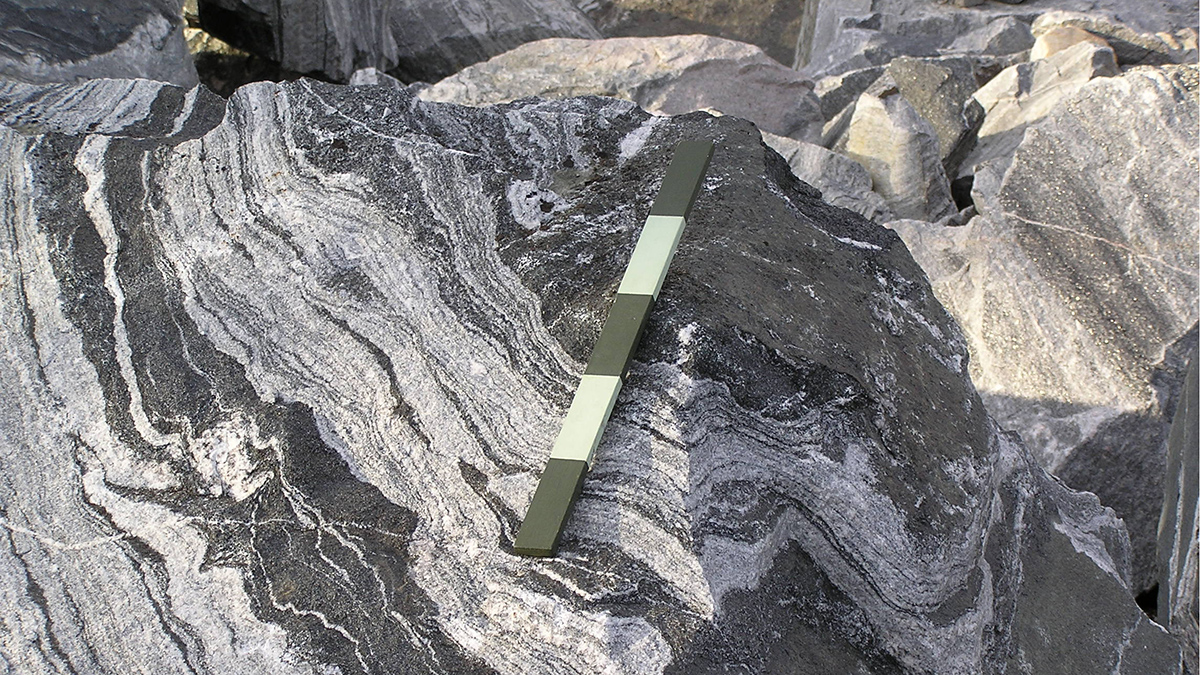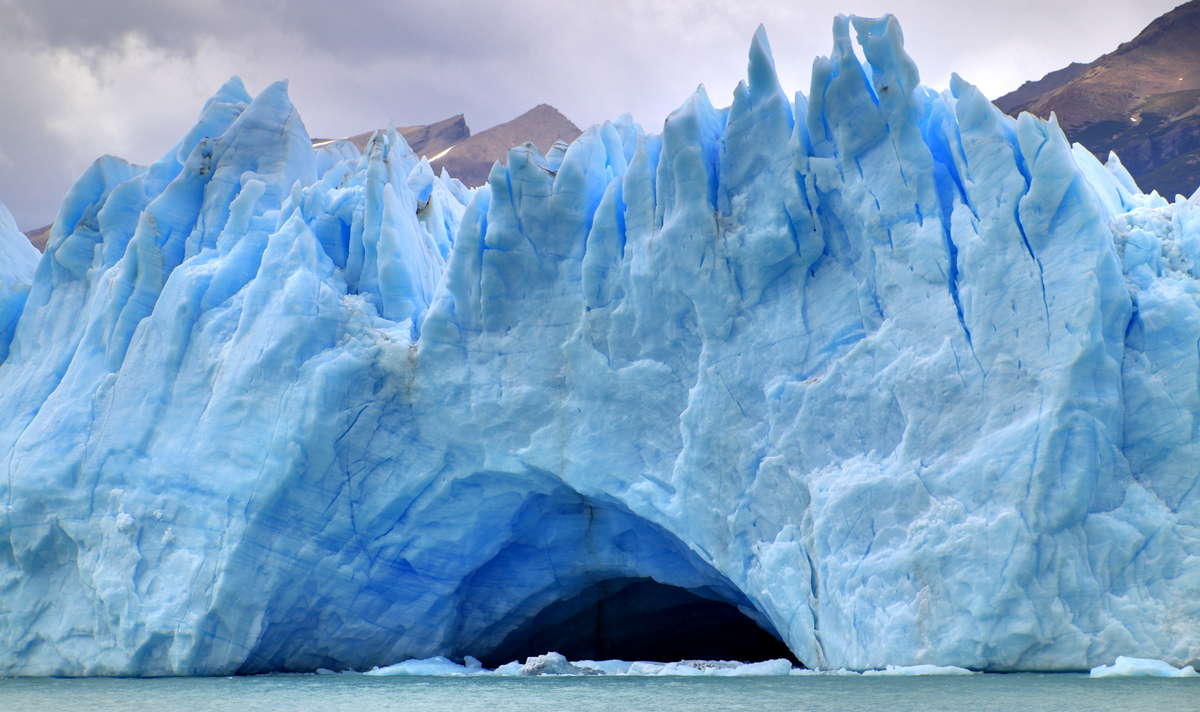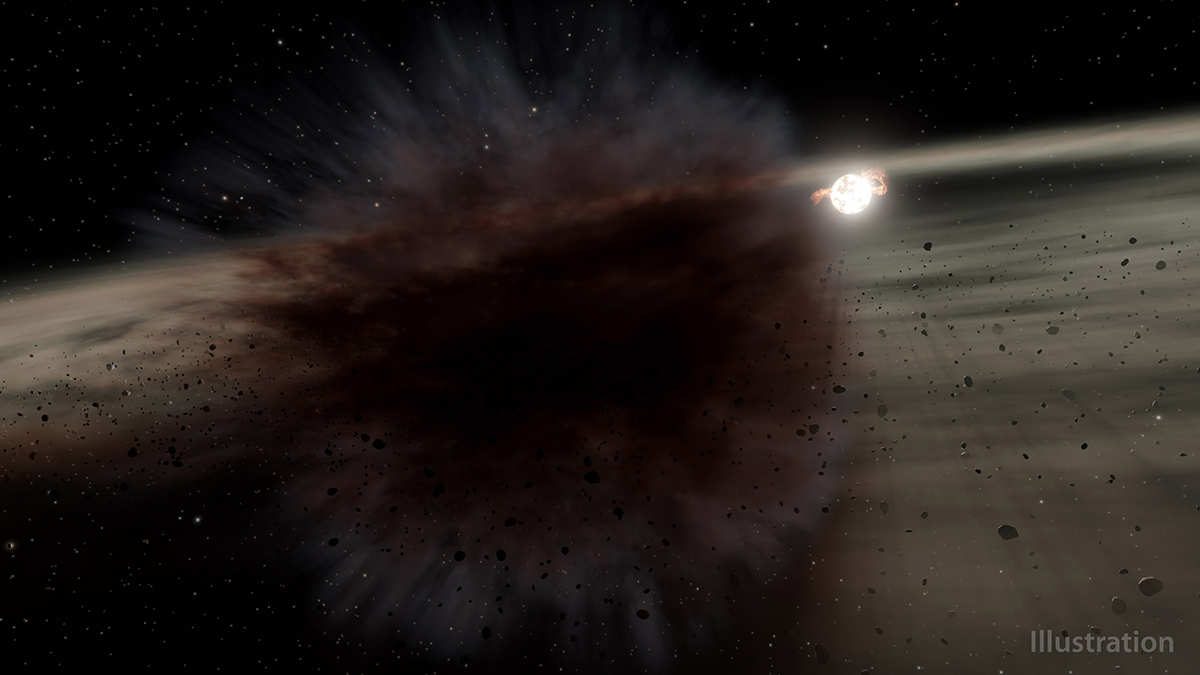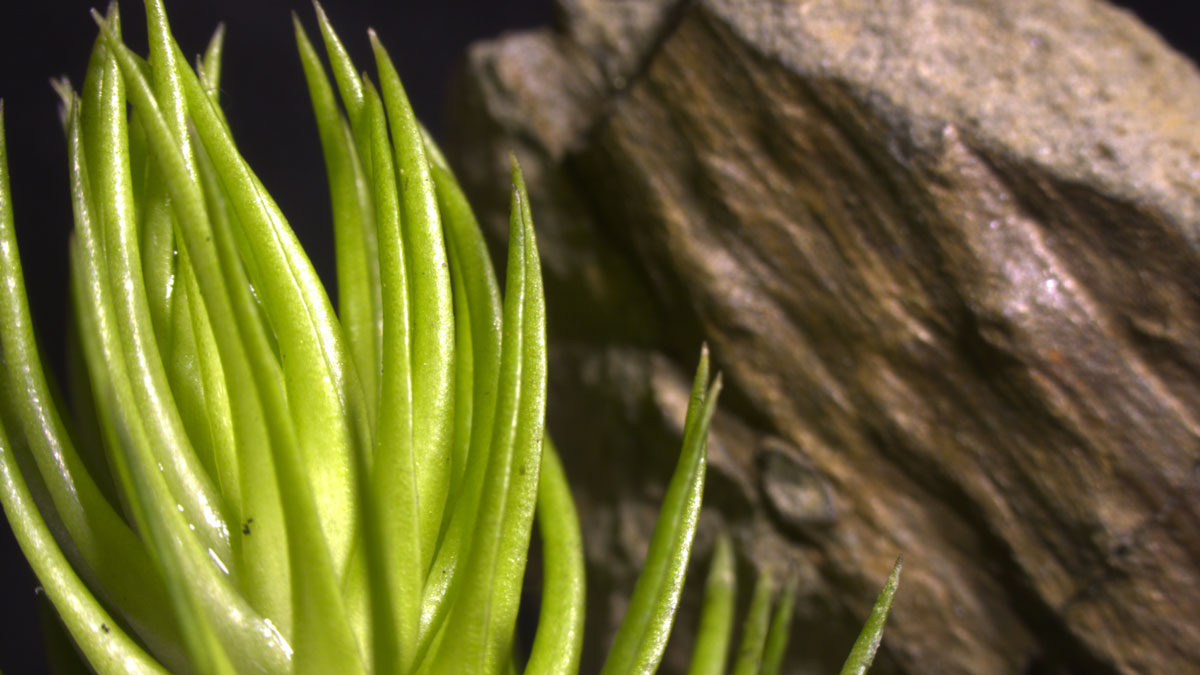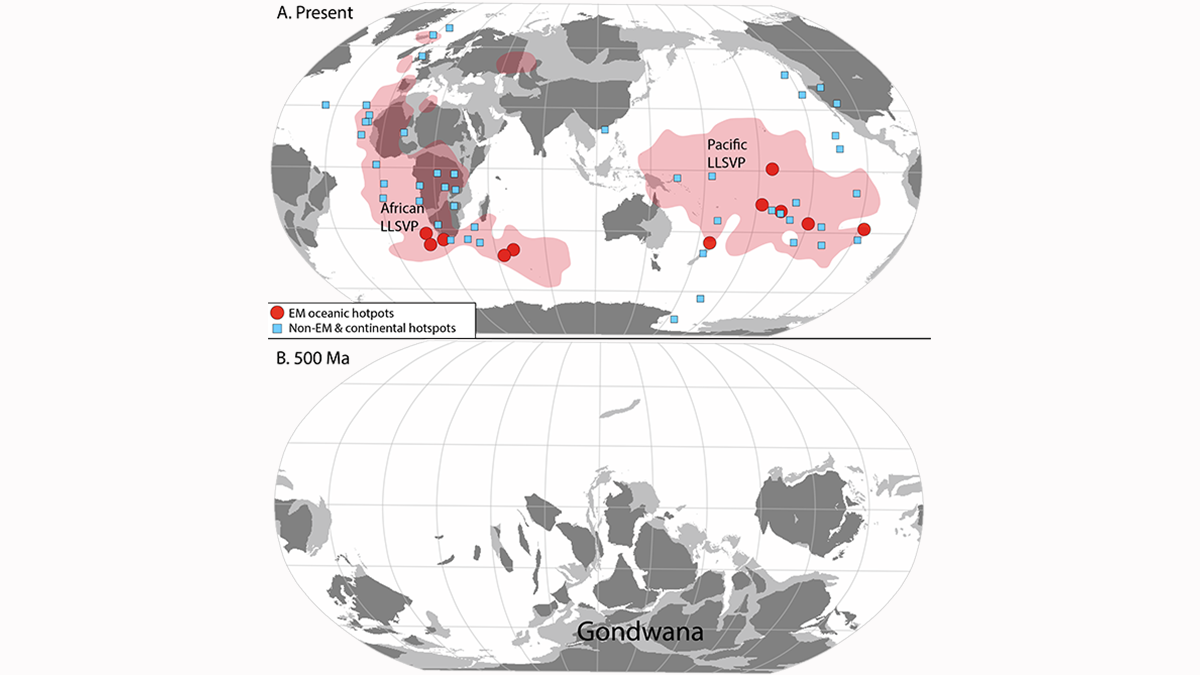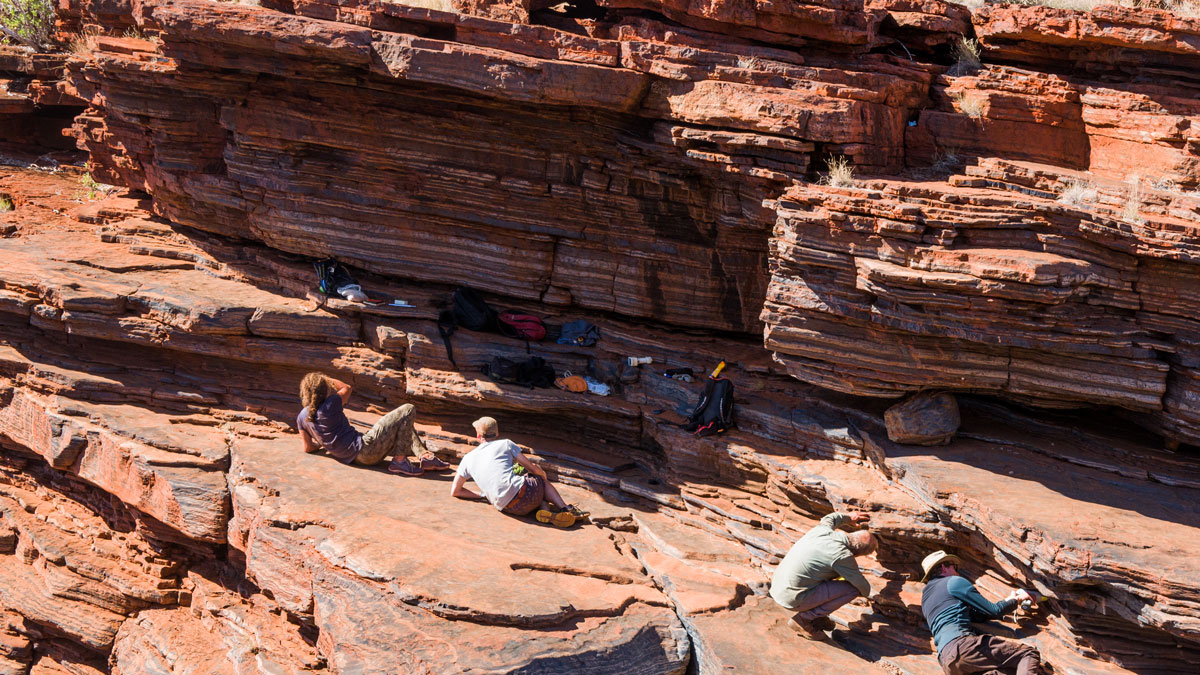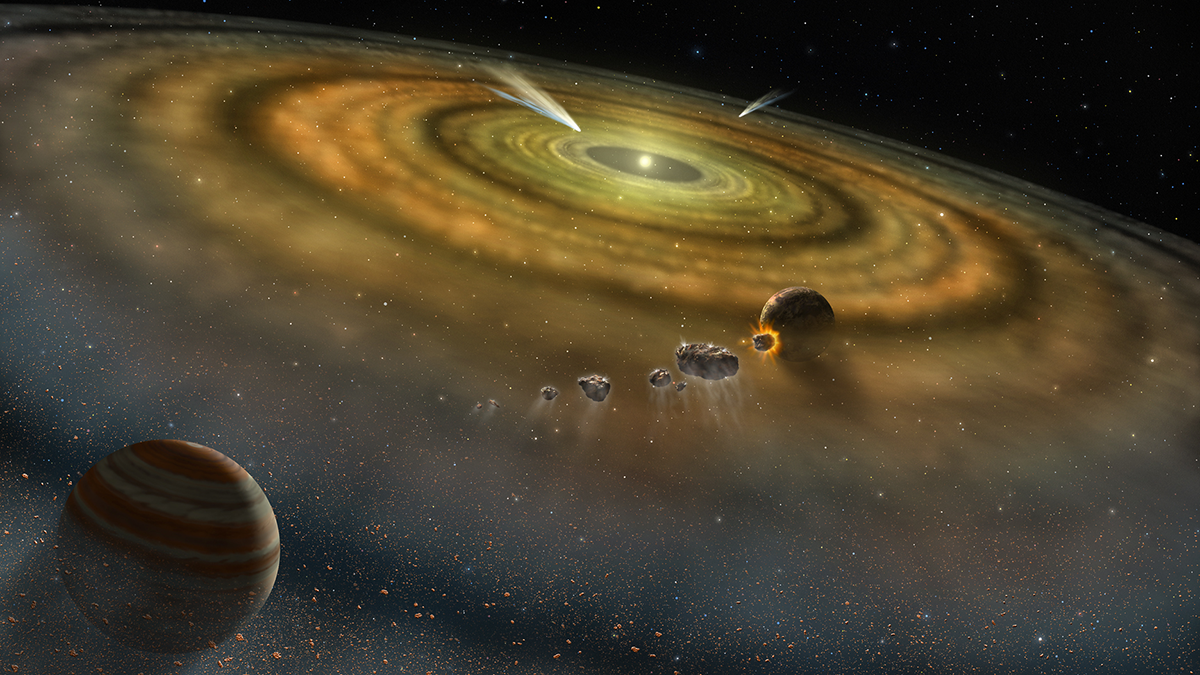For decades, a lunar whodunit has puzzled scientists: Did the Moon’s internal layers flip during its formation? Old data might hold the evidence to solve this cold case.
early Earth
From First Continents to Fancy Countertops
A new study suggests melting gabbros may have helped form Earth’s first continents, riling a long-standing debate.
Volcanic Lightning May Have Retooled the Nitrogen Needed for Life
Early Earth’s volcanoes could have spurred lightning that transformed atmospheric nitrogen, creating molecules that would have been necessary for life to emerge.
Evidence of Earth’s Oldest Glaciers Found in South Africa
The ancient glaciers hint at an Archaean Earth that may have looked similar in some ways to our own time.
Molten Meteorites Didn’t Deliver Earth’s Water
A new study has ruled out large, once-molten meteorites called achondrites as sources of Earth’s water.
The Seven-Ages of Earth as Seen Through the Continental Lens
The 4.5-billion-year record contained in Earth’s continental crust reveals a seven-phase evolution, from an initial magma ocean to the present-day environment in which we live.
Small Shrubs May Have Played a Large Role in Decarbonizing the Ancient Atmosphere
Vascular plants may have contributed to shaping Earth’s atmosphere long before trees evolved.
The Crust Travels to the Earth’s Core and Back in Record Time
Subduction of continental crust around the Gondwana supercontinent may explain the mantle Dupal anomaly of the southern hemisphere.
A Day in the Life Used to Be 17 Hours
The Moon was a lot closer to Earth 2.46 billion years ago, and the shorter distance contributed to shorter days.
Isótopos de criptón proporcionan nuevos indicios sobre el pasado de los planetas
Para determinar cómo los elementos cruciales para el desarrollo de la vida llegaron a la Tierra, los científicos estudian los gases nobles. Actualmente, métodos mejorados traen consigo nuevos indicios a partir del criptón, el gas noble más enigmático.


